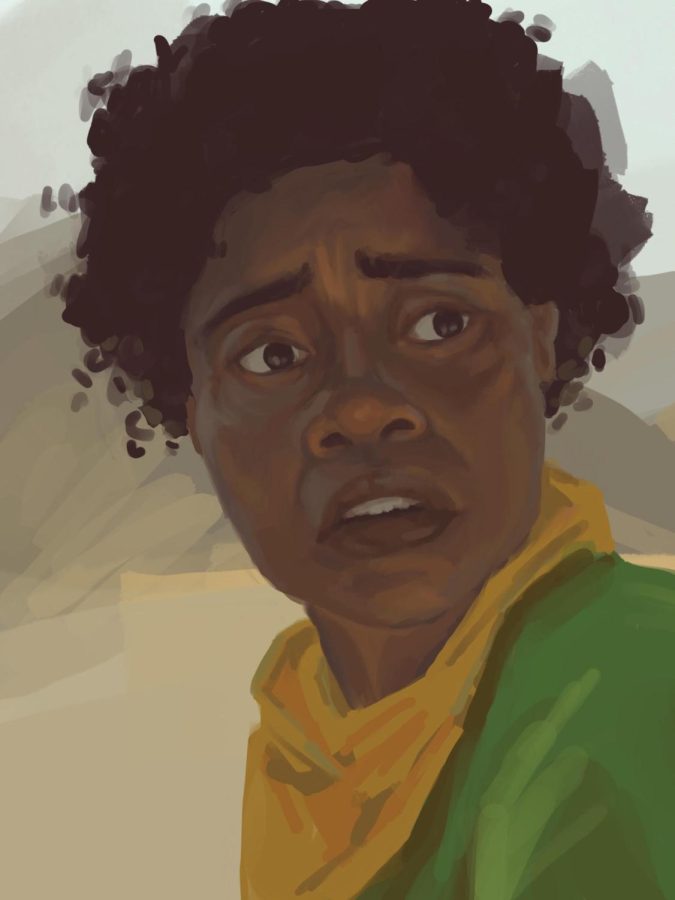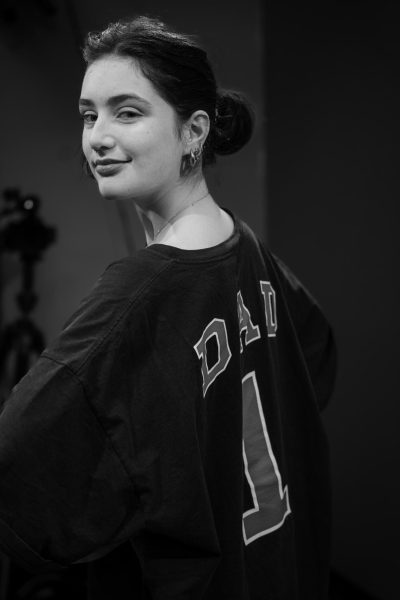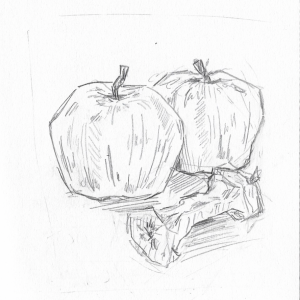Overanalyzing Nope
4/5 Falcons
October 6, 2022
(Warning: Spoilers)
If I told you the hottest new horror movie follows a brother-sister duo of Hollywood horse wranglers on their quest to defeat a carnivorous alien alongside a former child star with a traumatic past, you may very well laugh. Yet, despite a seemingly disjointed plotline, Jordan Peele’s Nope has grossed over $100 million in box-office earnings.
The movie begins with OJ Haywood on his father’s ranch, when, without warning, small pieces of metal and debris begin to rain from the sky, injuring a horse and killing OJ’s father. Yet, when OJ and his sister Emerald (played by Keke Palmer) discover that it was an alien creature who killed their father, Emerald’s first feeling is not grief or astonishment, but excitement over being able to catch the creature on camera and “get on Oprah.” From there, the movie focuses on the characters’ struggle to obtain concrete evidence of the alien, later nicknamed “Jean Jacket.”
This leads to the first and most obvious theme in Nope: The overarching criticism of the media and the lengths that we will go to get the “perfect shot.” As the movie progresses, a TV reporter finds out about the alien and loses his life in an attempt to take a picture of it before OJ and Emerald. As the reporter is about to be sucked into the belly of the creature, viewers can hear him crying out, “Where is my camera, where is my camera?” None of the characters in Nope are driven by a want for closure or even a passion for extraterrestrial life, but instead by a desperate desire to be seen and recognized. This same phenomenon is present in the real world, where many people will do increasingly dangerous stunts or say outlandish things simply for media attention. Many will, metaphorically or literally, put their lives on the line for clout.
This leads to the second theme in Nope—that no matter what, a predator cannot be tamed. An often overlooked character is Jupe, a former child actor in “Gordie’s Home.” The show starred Gordie the Chimp, a wild animal who was adopted by a nuclear family. It begins like a regular sitcom with predictable jokes and laughtracks, when, suddenly, the chimp snaps, murdering and maiming the cast and crew. Nope opens with a frame of the young Jupe as he watches the destruction from under a table. Remarkably, Gordie decides to spare Jupe. This experience gives the character a misplaced sense of superiority over the rules of nature. While the adult Jupe is aware of the alien, he doesn’t fear or respect it, and instead uses it as a spectacle for visitors at his fair. However, when Jupe inevitably fails to tame Jean Jacket, he is killed just like his old castmates.
While the two major themes of Nope seem to be completely unrelated, they are not. As the makers and users of the media, we fail to recognize its predatory qualities. Yet the endless need to consume content and be influenced means that TV, TikTok, or even the news has tamed us. OJ and Emerald are victorious over Jean Jacket only because they discover that the alien would not attack them if they didn’t look directly at it. If we equate Jean Jacket with the media, perhaps the only way we can save ourselves is to unplug and look away.
This article also appeared in the September 2022 print edition.











